Good Fats for Keto: 15 Essential Foods to Eat
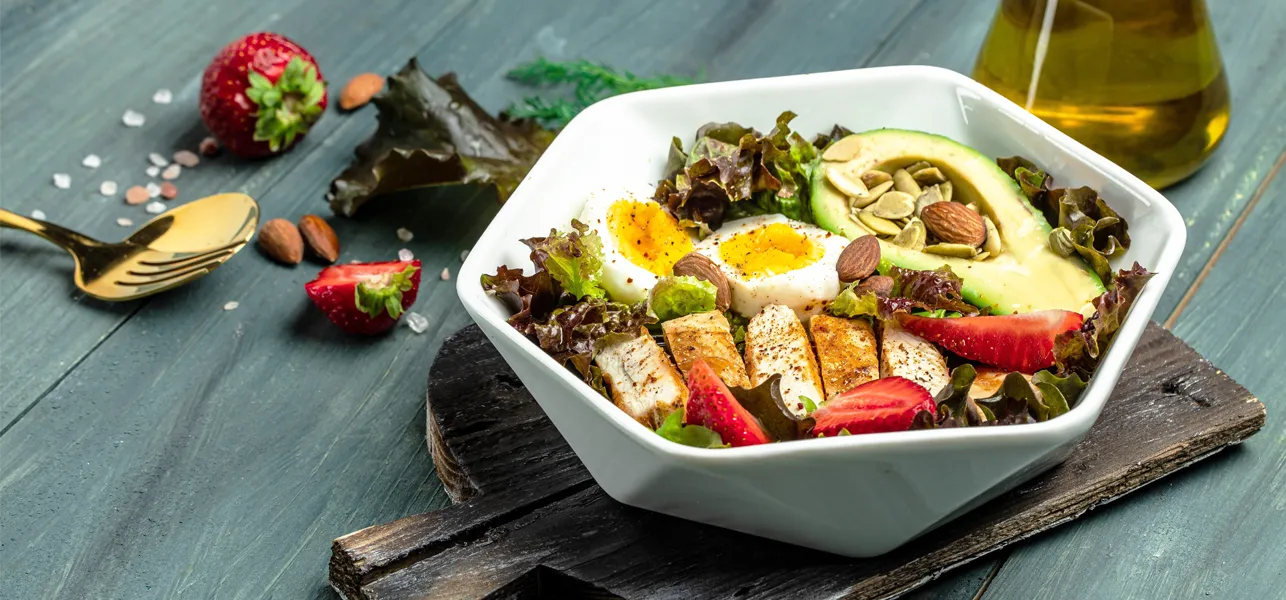
Whether you’re hoping to lose weight, lower your blood pressure, or reduce your risk of heart disease, the keto diet is a great way of achieving all of these goals.
When on a low-carb diet such as this one, your body burns fat to help it get all of the nutrients that it needs to function. So, although your fat consumption should be higher than usual, it’s crucial that you choose the right sources to stay healthy.
Keep reading to discover the top 15 healthy fats to enjoy and which foods containing saturated fat you should avoid when following the ketogenic diet.
Good Fats for Keto: 15 Best Options to Add to Your Diet
If you’re new to the keto diet or aren’t seeing the results you’d like, you may benefit from looking at the types of fats that you’re eating on a daily basis.
Here are the best foods and oils to include in your weekly meal plan:
#1 Avocados and avocado oil
As well as supporting heart health, avocados and their oil contain a range of vitamins and minerals that are essential to keep your body functioning properly.
Avocado is an excellent source of biotin, a water-soluble B vitamin that is beneficial for good skin and fast hair growth.
They are also one of the best high-fiber foods for keto, which is an important nutrient for maintaining good digestive health.
Consuming plenty of fiber is key for weight loss on keto because it helps to keep you fuller for longer, as well as reducing your risk of developing heart disease, type 2 diabetes, and some forms of cancer.
#2 Olives and olive oil
As a key component of the heart-healthy Mediterranean diet, olives and olive oil are beneficial for keto as they are packed full of healthy monounsaturated fats such as oleic acid.
With the help of the fruit’s powerful anti-inflammatory properties, these fatty acids help to effectively manage your cholesterol, raising levels of HDL, the “good” cholesterol, while lowering “bad” LDLs in the body.
This benefits your cardiovascular health by reducing the risk of high blood pressure and heart attacks.
Extra virgin olive oil is also loaded with plant compounds and vitamin E, both of which help to reduce inflammation in the body and lower your chances of developing diseases such as cancer and osteoporosis.
#3 Nuts and nut butter
Nuts are another ideal keto snack choice as they are high in calories. Eating them is, therefore, an easy way of getting more healthy fats into your diet without consuming more saturated fat.
These healthy fats are polyunsaturated fatty acids, meaning that they help to reduce levels of bad LDL cholesterol in the blood and protect you against heart disease.
Nuts such as almonds are also a good source of antioxidant vitamins like vitamin E, which lower the risk of developing cancer, Alzheimer’s, and other diseases of the brain.
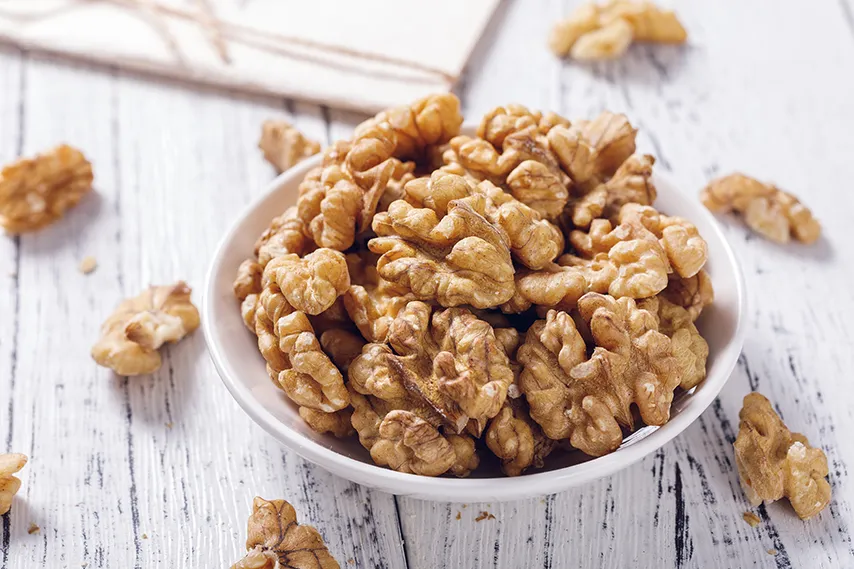
Advertisement
However, you’ll want to avoid nuts that are heavier on carbs, including peanuts, and instead try eating keto-friendly nuts such as walnuts.
Using nut butters as a dip for low-carb vegetables or spreading them on keto crackers has many of the same benefits as consuming whole nuts.
When browsing the supermarket shelves, opt for almond butter, which is higher in fiber than most other nut butters. This helps to keep you fuller for longer, preventing you from overeating and helping you to lose weight.
#4 Coconut oil
It is often debated whether or not coconut oil is good for weight loss as it contains high levels of saturated fats. However, adding unrefined, cold-pressed coconut oil to your meals has been proven to be beneficial for the keto diet.
This is because coconut oil is a natural source of medium-chain triglycerides (MCTs), an easily absorbed type of fat that helps the body move into ketosis and burn fat more quickly.
MCTs also boost metabolism and help you feel fuller for longer, meaning that you are more likely to lose weight.
#5 Flax seeds
Flax seeds are a great source of omega-3s and plant compounds, which have strong anti-inflammatory properties.
This means that they may help to prevent stress in the body that can cause several health risks, such as degenerative brain diseases, diabetes, cardiovascular disease, cancer, arthritis, and osteoporosis.
Once digested, flax seeds are ideal for weight loss as they produce a gel-like substance in the stomach. Along with their high fiber content, this process maintains your hunger levels throughout the day to prevent you from overeating.
#6 Chia seeds
Consuming just 1 tablespoon of chia seeds provides you with approximately 4 grams of healthy polyunsaturated fats, which pushes you much closer to your daily fat goal.
As well as offering 16% of your daily dose of fiber, chia seeds also contain plant compounds such as kaempferol and quercetin.
These two polyphenols have antioxidant and anti-inflammatory properties that help to prevent conditions such as cardiovascular disease, cancer, and diabetes.
#7 Ghee
Traditionally used in Indian cooking, ghee is a clarified butter that has a higher fat yet lower lactose content than regular butter. This makes it a more gut-friendly choice to add to your keto meals.
Ghee is also rich in vitamins A and E, fat-soluble vitamins that are crucial for maintaining your vision, healthy bones, and the immune system.
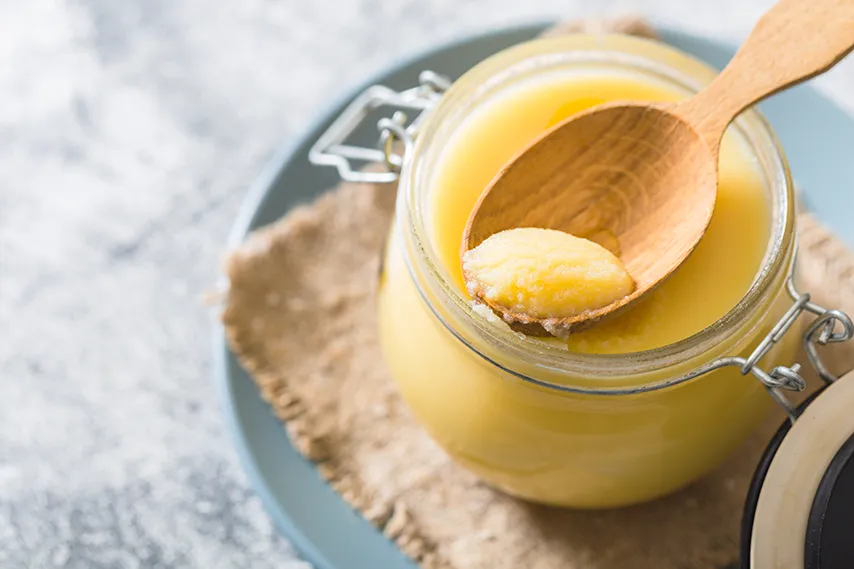
#8 Butter
You may believe that butter is bad for your heart health. However, recent studies show that there is only a loose link between high butter intake and heart disease.
So, as long as you are taking walks every day, eating a balanced diet, and maintaining a healthy weight, you shouldn’t rule out butter, especially when on a ketogenic diet.
Butter is good for keto as it contains 0 carbs and has a fat content of 80%. It is also rich in butyrate, a short-chain fatty acid that helps to keep your brain healthy and reduce the risk of developing neurological disorders.
#9 Lard
If you’re looking for a new keto-friendly cooking oil, then why not consider using lard? Lard is a type of pork fat that contains no carbs and is an excellent source of healthy monounsaturated fats.
It is also high in vitamin D, which is essential for good bone health, growth, and immune function. Vitamin D is therefore key to preventing diseases such as cancer, heart disease, and autoimmune disorders.
#10 Fatty fish
When on the keto diet, fatty fish such as salmon, sardines, tuna, and herring should be staples in your weekly meal plan.
As well as being rich in omega-3 fatty acids that contribute to good heart health, they are also high in protein. This nutrient is important for preventing hunger on keto, promoting healthy skin and hair, and keeping your bones and joints healthy.
These types of fish also contain large amounts of minerals such as calcium, magnesium, and potassium, which, when consumed together, contribute to lower blood pressure and improved cardiovascular health.
#11 MCT oil
Often used as a supplement in the athletic and bodybuilding communities, medium-chain triglyceride (MCT) oil is popular in the keto world too.
For instance, it is often used to make bulletproof coffee, a high-fat beverage that is favored by those on the ketogenic diet.
Most MCT oil is extracted from coconut oil since over 50% of coconut fat comes from MCT fatty acids.
This type of oil is lower in calories than olive or avocado oil, which are both made from long-chain triglycerides (LCTs), and is therefore ideal to use when you’re trying to lose weight fast.
Also, MCTs can be absorbed easily and converted into ketones, which provide energy when you’re following the keto diet and your carbohydrate intake is low.
#12 Cocoa butter
Produced from cocoa beans, cocoa butter is a type of pure fat that is perfect for the keto diet. In just one tablespoon of cocoa butter, there are approximately 14 grams of total fat, with no carbohydrates, protein, or hidden sugars to throw you out of ketosis.
It is also a great source of linoleic acid, with research indicating that consuming more of these healthier fatty acids can help to reduce bad LDL cholesterol levels. Linoleic acid may also improve insulin sensitivity and help manage blood pressure.
#13 Full-fat dairy
Many full-fat dairy products contain large amounts of healthy mono and polyunsaturated fats and protein, which make them ideal for the keto diet. This includes foods such as butter, brie, cheddar, and heavy cream.
However, watch out for whole milk, as this is a not keto-friendly dairy product. Milk is low in fats yet contains high amounts of sugar and net carbs from lactose, which will kick you out of ketosis.
#14 Beef
Beef is one of the best types of meat to eat on the keto diet as it contains no carbs yet around 28 grams of protein per 100g of tenderloin.
Although beef is high in fats, much of this is saturated, which can increase cholesterol levels and put you at a higher risk of heart disease.
When choosing a cut of beef to include in your meals, you should therefore try to choose unprocessed, lean, grass-fed beef where possible.
#15 Eggs
Fried, poached, and scrambled eggs make a great addition to your keto meal plan as they are packed with nutrients.
However, be sure not to eat just egg whites, as the yolk contains many essential nutrients, including the B vitamins folate and biotin, as well as omega-3s.
Folate, or vitamin B12, helps the body make red blood cells, and being deficient in this nutrient can cause severe fatigue, weakness, and low appetite.
How Many Grams of Fat Should I Consume on Keto?
Every person on the keto diet has different energy needs due to variations in weight, height, age, activity levels, and genetic factors.
This means that the exact amount of fats that you need to consume to remain in ketosis will differ from someone else on the diet, depending on your daily calorie goal.
To ensure that you eat enough fat on keto, you should make sure that 70–80% of your calorie intake is taken up with fats, with 10–20% protein and 5–10% carbohydrates. Try to get your fat from healthy sources rather than consuming too much unhealthy saturated fat.
On an average 2,000-calorie diet, this equates to 165 grams of fat, 75 grams of protein, and 40 grams of carbs.
How to Get More Fat on Keto
If you’re new to keto, trying to incorporate more fats into your diet can be difficult and a little intimidating. However, consuming plenty of fat is crucial for getting into ketosis and allowing you to achieve your fitness, body fat, or general health goals.
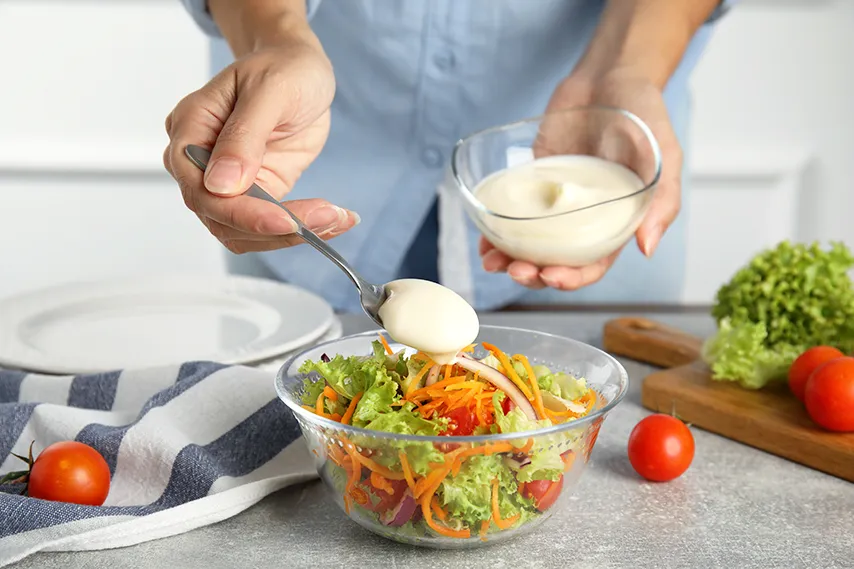
Think about how you can include good fats in every meal to boost the nutrient content. For instance, you can put avocado in your daily smoothie as a bonus fat source. Add creamy dressings and dips to your salad using mayonnaise and sour cream.
Cook your meats and fish in high-fat olive and coconut oil or butter and ghee. You could also add these fats to your morning coffee along with heavy cream to start your day right.
When wandering down the grocery store aisles, try to choose sources of protein that have a higher fat content. For example, choose chicken thighs over breasts and beef over turkey.
Fats to Limit on Keto
Although fats should be your main focus on keto, there are certain types that should be limited to help you maintain a healthy heart, keep your blood pressure low, and reduce your risk of cancer.
Takeaway meals and foods that have been deep fried in highly-refined oils tend to contain high amounts of trans fats, which can increase your chance of developing heart disease.
Artificial trans fats are also present in processed snacks such as cakes, cookies, crackers, and biscuits.
Most of these foods are typically high in carbs, too, so they should be avoided when trying to stay in ketosis. Check the labels on food packaging before purchasing, as trans fats are often indicated as “shortening” or “partially hydrogenated oils.”
You should also try to limit your intake of processed meats, such as sausages, pepperoni, salami, hot dogs, and other cured or smoked meats. These meats are low in carbs and high in fats, so they do fit into the keto diet.
However, consuming them in large amounts has been linked to cancer in the colon, pancreas, and prostate.
What You Should Know About Healthy Fats
Our team reached out to the best nutrition experts and dietitians and decided to dig deeper into the healthy fats topic. Are all the fats the same? What are the not-so-mainstream examples of healthy fats? Here are the answers.
There is a big misconception about fats and weight gain. Registered dietitian, Melissa Wasserman Baker from FoodQueries, states that “not all fats will make you gain weight. In fact, consuming healthy fats in moderation as part of a balanced diet can actually be beneficial for weight management. Fat is a necessary nutrient for a variety of functions in the body, including energy production and the absorption of certain vitamins. However, it’s important to remember that all types of fat are calorie-dense, so consuming too much of any type of fat (or any nutrient, for that matter) can lead to weight gain if you’re consuming more calories than your body needs.”
She also adds that not only MCT oil, butter, or ghee are considered healthy fats: “Some not-so-usual examples of healthy fats include chia seeds, flaxseeds, hemp seeds, walnuts, and fatty fish such as mackerel, sardines, and herring. Additionally, some plant-based oils such as grapeseed oil, sesame oil, and macadamia nut oil can also be healthy options when used in moderation.”
Another expert, oncologist Dr. Danielle Leonardo from My Breast Cancer team, adds that “unsaturated fats (which are your monounsaturated [MUFA] and polyunsaturated fats [PUFA]) are considered healthy compared to saturated fats. Molecular-wise because saturated fats are saturated with hydrogen molecules, they tend to solidify at room temperature compared to unsaturated fats. These fats that solidify in room temperature are also the ones that harden in your arteries forming atherosclerosis. Unsaturated fats are less likely to deposit in your arteries, thus considered healthy fats.”
FAQs
Butter is keto-friendly food as it typically contains 80% fat and 0 carbs. However, you should avoid choosing low-fat versions or butter alternatives, as these are not keto.
Yes, eggs can be eaten on keto as they are high in protein and healthy fats. Eat both the yolk and the whites to benefit from the full range of nutrients that eggs have to offer.
Technically, you can consume foods containing saturated fats when on keto. However, you should limit your intake and try to eat more healthy fats, as saturated fat can increase your risk of heart problems and cancer.
All 15 of the good fats that we’ve explored have no carbs but are high in fats and should be included in your keto meal plan.
A Word From an MD
Choosing a low-carb, high-fat diet such as keto has several health benefits, including speeding up weight loss, improving cardiovascular health, and keeping you fuller for longer.
Although in the past fat has been demonized for its link with bad heart health, more recent research has proven that it is a vital macronutrient for healthy bodily function and reducing your risk of disease.
For instance, healthy keto fats help your body absorb the fat-soluble vitamins A, D, E, and K, which are essential for strong bones, maintaining your vision, fast hair growth, and good immune health.
Try to limit your intake of artificial trans fats and highly processed foods to maintain your health and reduce the risk of heart disease, heart attack, stroke, or cancer.
Instead, prioritize healthy unsaturated fats, which can be found in foods such as avocados, nuts, eggs, and full-fat dairy.
Conclusion
Although your fat intake should be high to stay in ketosis, eating a variety of good fats while on the keto diet is essential for maintaining overall health.
Rather than binging on fried and processed foods, try to include more nutritious choices in your diet, such as avocados, flax seeds, nut butters, and fatty fish.
Eat these whole foods while avoiding processed oils and instead cooking with olive oil, butter, or ghee.

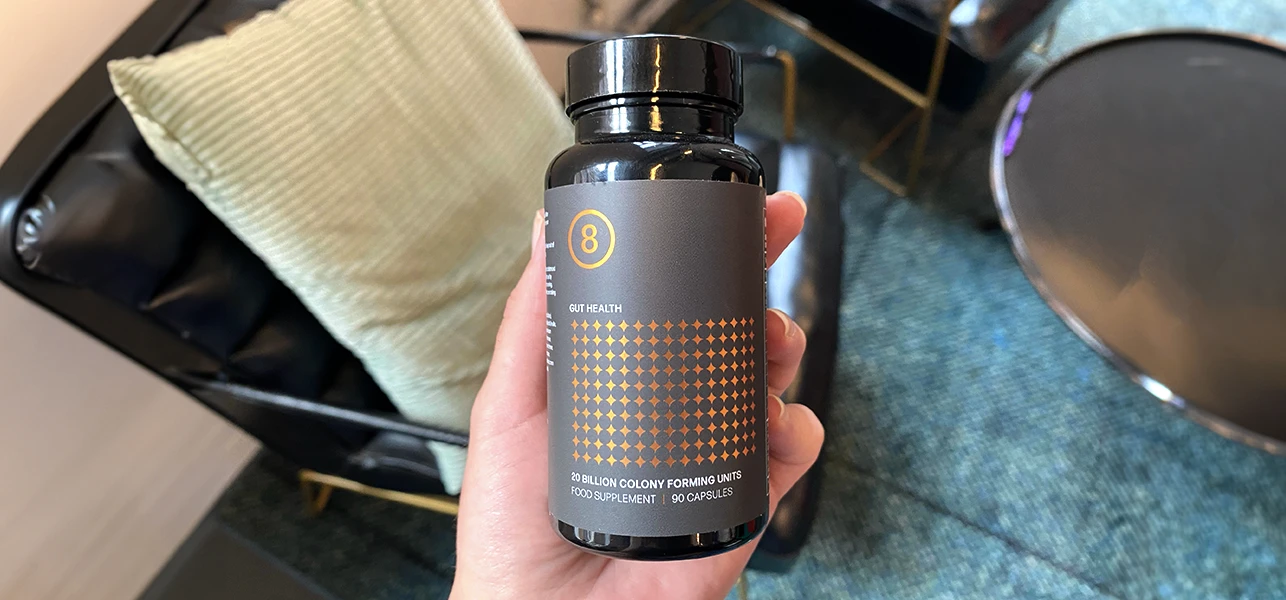

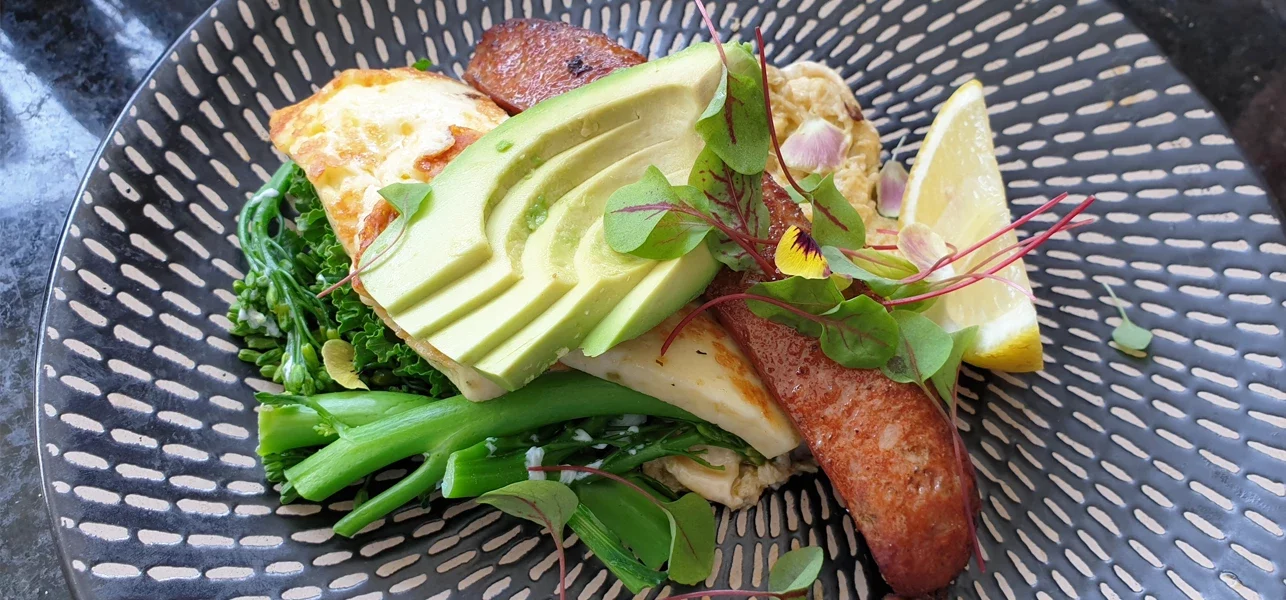



Comments (0)